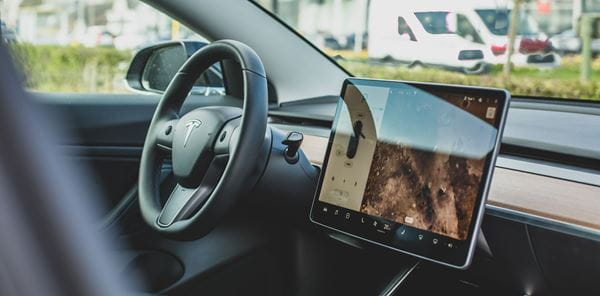
Driving Value with Improved Driver Behaviour
The way your drivers behave can have a huge impact on your fleet costs, from fuel consumption to insurance premiums. So what exactly can Global Fleet Managers do to help drivers behave in ways that reduce carbon emissions and fleet expenses – and enhance the safety of all road users?
Better driving, lower costs
Driver behaviour is probably the biggest contributor to your fleet’s variable costs.
It affects how much your business spends on fuel, with aggressive acceleration and unnecessary idling emptying tanks – and draining related budgets – faster. It affects the number of accidents your vehicles are involved in. And, as a direct result, it also affects your insurance premiums.
Smart Global Fleet Management can help you positively influence driver behaviour and, in turn, minimise your outlay in every one of these areas – while keeping your people, and other road users, safer.
Measure and report on unwanted driving behaviours
Manual risk assessments and in-vehicle telematics can offer invaluable insight into driving styles and behaviours, helping to pinpoint those currently pushing up your fleet’s variable costs.
Identify their root causes
Knowing where you’re wasting money is great. Knowing why is even better.
You should look to identify the root causes of wasteful driving behaviours and target your training and preventative measures accordingly.
For example, is driver tiredness a regular cause of damage to your vehicles? Or a simple lack of parking skills?
Prioritise the most urgent areas for your business
Your next step is to figure out which root causes to address first. You may want to prioritise ‘easy wins’, or go straight for the issues causing the greatest risk and cost within your business. Every company is different, and so is the right path forward.
Respond in the smartest possible way
Responding in the smartest possible way could mean a new programme of online, in-person or behind the wheel training. It could mean new driver incentives. Or it could mean all of the above.
You should tailor your programme based on the nature of your fleet, your company culture and the seriousness of the issues, remembering to report on participation and progress.
The potential impact
In Europe, fuel costs average €2,000 a year, while road accidents cost an average of €700 per incident. Put simply, the financial value of addressing risky and costly driver behaviours can quickly add up.
One company introduced a pilot programme to identify and retrain its at-risk drivers in Spain and Italy, and saved €57,400 in the first year, while cutting accidents by a third.
Improving driver behaviour is just one way Global Fleet Management can deliver value for your business. We’ve already explored a number of others on this blog – take a look back at our previous posts – and there are still more to come.
Posted by Guest Author Reinier Willems in Cost Management, Driver Management, Global Fleet Policy, Insight.





